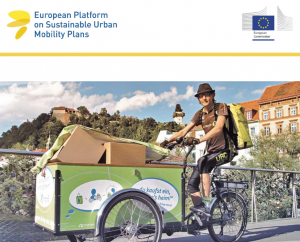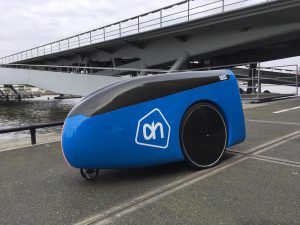Monthly archives: July, 2019
French E.VO.L.U.E initiative for efficient citylogistics

The collaboration between the French associations Aslog, Institut du Commerce et Club Déméter has launched a joint initiative called Voluntary Commitment for an Efficient Urban Logistics (E.VO.L.U.E). By bringing together their teams, mobilizing their members and the pooling of their work and data, the initiative aims at building bridges with the territories by proposing solutions …
Is air pollution improving in Paris and London? Not fast enough…
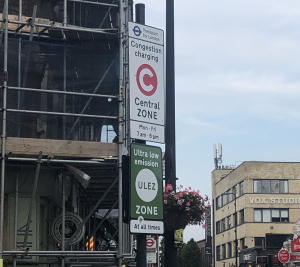
Paris and London are Europe’s two megacities. Both experience poor air quality with systemic breaches of the NO2limit value. Policy initiatives have been taken to address this; some European-wide (e.g. Euro emission standards) and others local (e.g. Low Emission Zones). A study by Font et. al. evaluated trends in NOX, NO2 and particulate matter (PM10, …
Dutch Albert Heijn introduces delivery robot
Research: German trip data of cargo bikes published

The German NCP project “Cargo Bike Depot: implementing of depots in inner cities” investigates the traffic-, logistic- and citizen-friendly implementation of load handling nodes for cargo bikes in urban areas. One component of the research is the investigation of the effect of high cargo bike traffic intensities induced by the transshipment nodes on city streets …
Tel Aviv: profitable one-hour online groceries for everyone?

A new innovative facility in Tel Aviv is aiming to put the leading retailers of the world to shame with a new automated grocery delivery center that uses robots to provide product fulfillment way faster than human beings ever could. CommonSense Robotics, has done a lot of research and gotten a lot of things right …
London collaboration in business improvement district to reduce urban freight movements
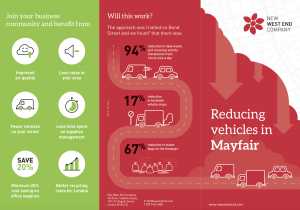
This year the Mayor introduced the Ultra Low Emission Zone (ULEZ), where drivers of older, more polluting vehicles will now be charged to enter the congestion zone area at all times. This is part of a wider effort from the public and private sectors alike to tackle the issue of air and traffic pollution across …
UK Magway developing underground parcel delivery network
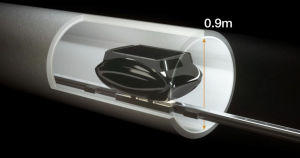
Addressing the environmental and infrastructure challenges caused by the growth in e-commerce deliveries, Magway has won co-funding support from Innovate UK via its Emerging and Enabling Technologies competition. Magway is a “delivery utility”, delivering parcels between distribution centers and consolidation centers via underground pipelines similar to those used by water, gas and electricity companies.
Why do city logistics initiatives fail?
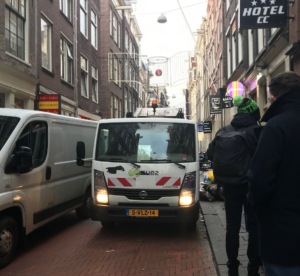
Despite more than 25 years of research in city logistics, it seems impossible to keep the growing number of, often half-empty, trucks out of our cities. City logistics problems seem unsolvable. Many initiatives fail, other initiatives only survive with subsidies or get caught in bureaucratic systems. But they don’t result in fewer trucks and vans. …
Charging e-mobility: predict and prepare!
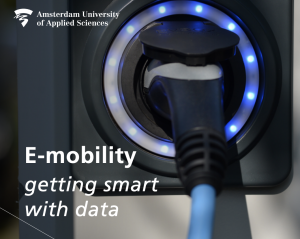
Entering into the world of electric mobility, we have to prepare for a local public-charging infrastructure for e-mobility. Over the past five years, the Amsterdam University of Applied Sciences (AUAS) – researchers, teachers, and students, together with municipalities, research institutes and companies – have gathered and analyzed the charging data of public-charging infrastructure in the Netherlands.

